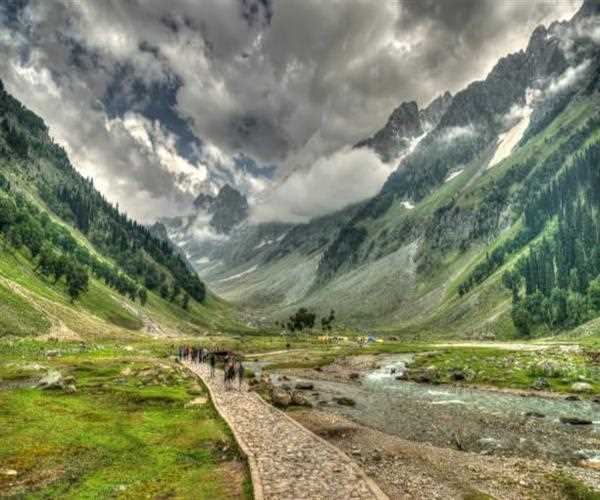
18-Mar-2023
The history of Kashmir 'An integral part of India'
The region of Kashmir has been a contentious issue between India and Pakistan for decades, with both countries claiming it as their own. However, according to India, Kashmir has been an integral part of the country since ancient times.
The name Kashmir comes from the word "Rishi Kashyap," which refers to one of the seven Saptrishi rishis who used to teach in the north of India. The state and its name have different meanings for different people.
After many years, Maharaja Hari Singh on 26 October 1947 marked the promotion of Kashmir as an indispensable piece of India. A few old bits of proof show the unmistakable presence of the Indian Association in that piece of Asia.
The history of Kashmir dates back to ancient times, with evidence of human habitation in the region dating back to the Neolithic era. The region was ruled by a number of dynasties over the centuries, including the Mauryan and Gupta empires. In the 6th century, the region was ruled by the Karkota dynasty, which was followed by the Utpala dynasty in the 9th century.
The most significant period in the history of Kashmir as an integral part of India was during the reign of the Hindu ruler Raja Harsha in the 7th century. During this time, Kashmir was a prosperous kingdom with a thriving economy and a rich cultural heritage. The region was also home to a number of notable scholars, including the famous poet Kalidasa.
In the 14th century, the region came under the control of the Muslim ruler Shah Mir, who founded the Shah Miri dynasty. This marked the beginning of Muslim rule in Kashmir, which continued for several centuries. However, even during this time, Kashmir remained a part of India and was ruled by Indian emperors such as Akbar and Jahangir.
During the 19th century, Kashmir was ruled by the Dogra dynasty, which was a Hindu dynasty that had close ties to the British. The Dogra rulers maintained Kashmir as a part of India, and it remained a princely state even after India gained independence from the British in 1947.
The status of Kashmir as an integral part of India was further cemented in 1954, when the Indian constitution was amended to include the state of Jammu and Kashmir as a part of the country. However, tensions between India and Pakistan over the region continued, and in 1965, the two countries fought a brief war over Kashmir.
In 1989, a separatist movement emerged in Kashmir, with militants demanding independence from India. This led to a period of unrest and violence in the region, with the Indian government deploying troops to quell the insurgency. The situation in Kashmir remains tense to this day, with sporadic outbreaks of violence and protests.
The genocide of Kashmiri pandits is one of many instances in which Indians and Kashmiris have been murdered and forced to flee the state. Our freedom fighters, who gave their lives for India's unification, have gone unnoticed by us, but now is the time to unite our Akhand Bharat.
In conclusion, the history of Kashmir as an integral part of India dates back centuries, with the region being ruled by a number of dynasties over the years. Despite the ongoing conflict with Pakistan and the separatist movement in the region, Kashmir remains an integral part of India and is an important part of the country's history and culture.

SEO and Content Writer
I am Drishan vig. I used to write blogs, articles, and stories in a way that entices the audience. I assure you that consistency, style, and tone must be met while writing the content. Working with the clients like bfc, varthana, ITC hotels, indusind, mumpa, mollydolly etc. has made me realized that writing content is not enough but doing seo is the first thing for it.
Comments
Join Our Newsletter
Subscribe to our newsletter to receive emails about new views posts, releases and updates.
Copyright 2010 - 2026 MindStick Software Pvt. Ltd. All Rights Reserved Privacy Policy | Terms & Conditions | Cookie Policy